Text
The conversation regarding the ethical responsibilities of artists brings about the question of the extent to which this ethical responsibility should be upheld. Who are artists, and what is the art that they make?
This attempt to define art is futile, as every definition rebuts another. Art is intention behind creation, it is the ability to convey ideas, it is as defined by the institution, by aesthetic value, and by evidence of formal qualities. It is everything, but also a clear subset of things, based on the definition used.
All art, by any definition, conveys something, as does everything else. And it is by this that artists bear ethical responsibilities, as does everyone else. The value of art is in its ability to convey, if intentional or not. Nothing exists in a vacuum beyond external implications, hence the responsibility to be aware of these implications within a work, and everything else.
5 notes
·
View notes
Text
Art and the Audience
Art is often a reflection of how one feels about the world and its people. An audience is often the inspiration for art; the way in which an artist views people affects how they are portrayed in their art. The meaning of an artwork changes as context changes with time, which is affected by people, thus the audience plays a large part in the lasting impact and meaning of art. What an artist creates and what it is perceived to be are separate but coexistent in the art itself and its ultimate purpose, its original intention and its lasting impact both being valuable. Even artwork created with no meaning intended behind it looks to convey something. The idea of what an artwork is exists in the mind of an individual, as they perceive it through their own lens, and carry on with what they took away from it.
0 notes
Text
My mom likes to tell me that everyone should believe in a god. ‘When there is no one left, and you can’t hold yourself up, then what do you have?’. The omnipresence of god, the idea of an eternal pillar of definite good is something to lean on when everything else is rooted in inherent bad. In this case, what is god if not a symbol of the possibility of good? ‘You should believe in God because you can’t count on worldly things’.
This message was relayed in my 11th grade Bible class about Paul the Apostle when my teacher would tell us that ‘he lost everything and was still able to continue forward because he believed in God’s goodness and His plan.’ After facing persecution, he continued to preach because he believed that ‘‘what has happened to me (him) has actually served to advance the gospel’ (Philippians 1:12), and that ‘To die means to be reunited with the Lord, which he deems ‘better than living’ (Philippians 1:23). His belief in God gave him something to lean on, for lack of a better word. 'We can all learn from Paul, who put his life, his sense of purpose, in the hands of the Lord.'
What does it mean then to be religious? What is the purpose of the belief in a god if not simply having something to believe in, a prescribed purpose, to combat the absurd? Is it enough to rely on worldly things as a means to keep going? Sometimes I don’t think it is, but sometimes the idea that there is nothing greater to live for provides that same solace. Why do you believe in a god?
47 notes
·
View notes
Text
Extension to this
Are the actions encapsulated by the glass cliff then justified? Is the possibility of a woman excelling in her new position worth the gamble that comes with the glass cliff?
From a business standpoint, it does help your image to encourage more women into positions of leadership. However, is it worth the possibility of the pressure being too much for a woman (who was very much set up) to handle the crisis inefficiently, despite her promotion only having been prompted by said crisis, and not being given the appropriate adjustment time?
#ethics#anthropology#belief#discussion#knowledge#opinion#philosophy#society#sociology#thoughts#feminism#patriarchy
1 note
·
View note
Text
The oppressed are allowed once every few years to decide which particular representatives of the oppressing class are to represent and repress them.
- Karl Max
2 notes
·
View notes
Text
The Glass Cliff
The Glass Cliff is a phenomenon that describes women more likely being promoted into positions of leadership during a time of hardship and crisis for the organization: a time where failure is far more probable.
Just as the name suggests, it is the placing, or in this case the promoting of women that pushes them to the end of a metaphorical cliff. They are expected to do well in the crisis, however, if they fail, then they fall off this “cliff”. Essentially being set up for failure.
While the promotion may seem like a good thing at first, the timing is what sets women up. If she did well, the timing of the promotion can be brushed off as mere coincidence. If she fails, then as intended, she is now to blame for the ineffective response of the organization toward the crisis. In doing so, there is a chain response that sets off.
The woman is blamed for the company not responding well to the crisis → the company is now at liberto to reappoint the man into the position of leadership
Even if this does happen, the company will still be seen as progressive for allowing a woman the opportunity to step into a leading position.
#ethics#anthropology#belief#discussion#knowledge#opinion#philosophy#society#sociology#thoughts#feminism#patriarchy
3 notes
·
View notes
Text
A surgeon has recently been to see a patient, and diagnoses them with heart failure. Their prognosis does not seem promising. The treatment course without question is a synthetic heart. Fortunately, this is something well within the surgeons capabilities. As they are discussing the planned course of treatment, the patient passes out, forcing the doctor to leap into action immediately.
However, as they are reviewing the patient's medical history, it is revealed that, (for religious reasons) the patient refuses any form of synthetic organs.
Is the doctor supposed to ignore the patient's wishes and proceed with the surgery that can save their life? Or is he supposed to honor his oath as a doctor to provide healthcare for the critical patient, lying unconscious in his office? There really is no right or wrong answer here, as it is extremely dependent on an individual's personal belief system.
Sidenote this is a dilemma that occurs fairly often in the show Grey’s Anatomy.
0 notes
Text
Agreement should be the basis of rational argument; without it, people would just talk past each other.
2 notes
·
View notes
Text
Does experience matter in our pursuit of knowledge?
Michael Jackson's “They Dont Care About Us” was written after being falsely accused of raping a young boy, which he claimed innocence. Throughout the case he was able to experience first-hand, how the justice system was not an even field for him.
While there were many controversies regarding word choices in the song, the message remains clear: black men in the US are served the shorter end of the stick, while white men are at a comparative advantage.
While allies are able to sympathize and offer support to people facing racial discrimination, some are never able to truly understand what it feels like. Knowing what happens when an individual faces racism is one thing. Feeling the effects of it physically, emotionally and psychologically is another. It doesn't take much for someone to know of racism, but not everyone is able to say that they truly understand the depth of its effect.
This aligns with the Empiricism: the belief that all knowledge and ideas come from experience. Maybe you can know something, but maybe there are others who understand it better because they’ve experienced it. There is a large amount of truth that can be taken from this perspective. Remember it the next time you claim to have objective knowledge of a topic over someone else.
#ethics#philosophy#thoughts#discussion#opinion#society#sociology#anthropology#belief#michael jackson
25 notes
·
View notes
Text
The infantilization of the patriarchy is a step back in the progress that's been made.
It is not little boys who make snide comments about girls being weak who are the ones pushing the patriarchy: it is grown men who actively and consciously participate in the verbal, emotional, sexual and physical abuse of women.
3 notes
·
View notes
Text
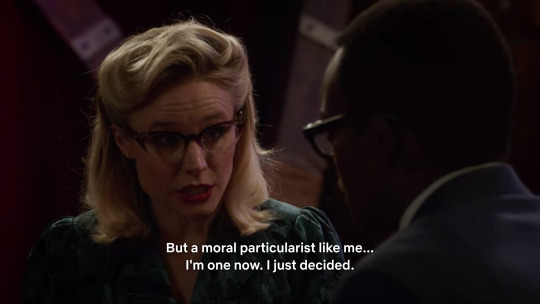

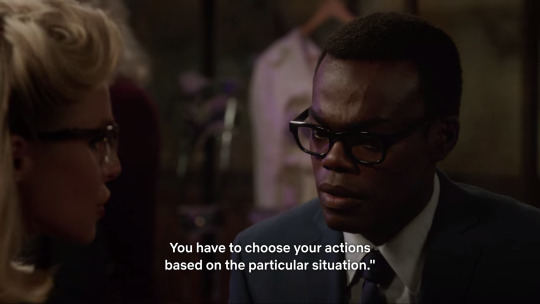
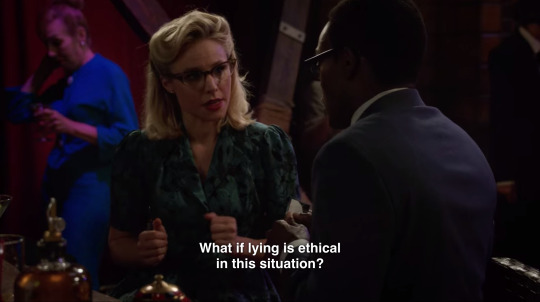


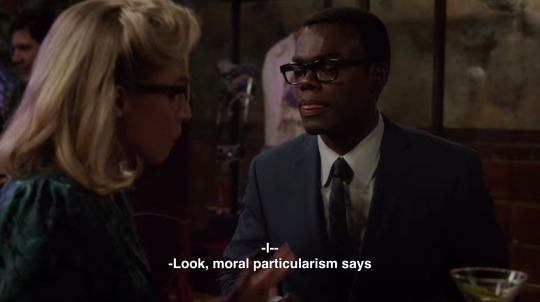
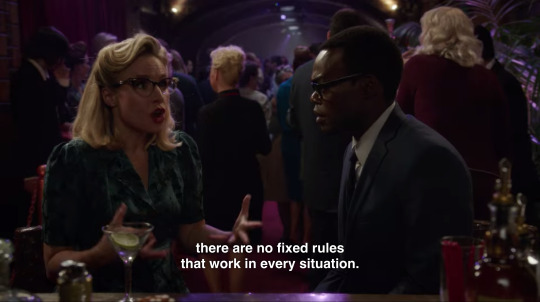
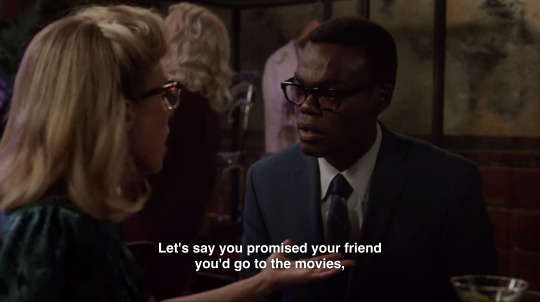



#ethics#philosophy#thoughts#discussion#opinion#knowledge#society#sociology#anthropology#belief#the good place#tgp#theponderingducks tgp
4 notes
·
View notes
Text









#ethics#philosophy#thoughts#discussion#opinion#knowledge#society#sociology#anthropology#belief#the good place#tgp#immanuel kant#moral particularism#jonathan dancy#theponderingducks tgp
4 notes
·
View notes
Text
Should we distrust people in positions of authority?
Theoretically, people who hold positions of authority should be trusted because they are qualified enough to earn that position. Reality isn’t like this. How can we trust authorities to help us during times of need, when corruption in the government, typically the highest form of authority in a nation, costs their citizens so greatly? Perhaps what our world and our history tells us is that we should have expectations, but also act accordingly to what the authorities believe are what will benefit society the most. The development of societies itself means that we have become interdependent and to remain that way, we need to work together. Everyone must contribute.
Cynists and pessimists may default to having little trust in authorities. Those who remain positive may wholly trust authorities. These are two extremes. Like many things, we should find a balance to be the most productive we can be. Maybe we should largely trust authorities but remember the bad things they are capable of. Awareness is an important tool for progress, but it also requires action– this is where activism and protests come in.
If those in authority are expected to contribute to society by establishing a solid institutional framework, then those who aren't should contribute by demonstrating to authorities whether or not the framework works. If the authorities refuse to acknowledge any issues, then those without authority should be allowed to protest against them as an attempt to bring light to an issue.
So why are some people so against protesters or activists? If they trust that there is an issue, shouldn't they be heard so that the authorities can make change?
Don’t forget that people don’t just do things for no reason. There’s a motive, and sometimes you just won’t even think of it. Stop and try to view things from their perspective first.
#ethics#philosophy#thoughts#discussion#opinion#knowledge#society#sociology#anthropology#belief#authority
0 notes
Text
Gentle Parenting: Is there any difference relative to regular parenting?
Gentle parenting, often also called respectful parenting, refers to the “new” system of parenting where rules and boundaries (when appropriate) are set in discussion with the kids. There are a few exceptions of boundaries being non-negotiable, usually the ones regarding the child's safety, or those regarding what is expected of them, which may vary from household to household (e.g. no shoes on the bed, no painting without covering the table first, etc). While there is no real guidebook for it, and variations exist within the community itself, it revolves around one main cohort of ideas: empathy, respect, understanding and, despite what some paint as the opposite, boundaries.
Oftentimes, the seeming/ supposed lack of authority allows for observers to group gentle parenting with permissive parenting. Not to be confused between the two, as gentle parenting is not equivalent to “letting your kid run the show”. Rather, it is gentle enforcement of boundaries and (when necessary) guidance toward self-correction. All this is done while keeping in mind that the main goal of discipline is not to teach kids to shove their emotions aside, rather providing them with the tool they will need to independently regulate their emotions in adulthood.
Discipline is centered on natural and correlated consequences: instead of fussing and yelling at a toddler for spilling juice, directing them to a cloth or paper towels they can use to wipe the spill instead. This instills in them the appropriate response toward a spill, calmly wiping the mess without fearing the response of the parent if they are to make mistakes. Not only that, it teaches them to not associate fear and shame with “bad behavior”, ultimately leading them to hiding mistakes in fear of anger.
So how does gentle parenting differ from regular parenting?
Some of the main differences include the following:
Children must always respect their elders vs parents respecting their child leads to reciprocation
Being punished for bad behavior vs not labelling a behavior as bad, rather just a child trying to communicate an unmet need
Children should learn to self-soothe vs Self-soothing is not a skill to be learned but rather a stage in development and can be aided by supporting emotional regulation in the early years
To note that these are only some of the many differences.
#ethics#philosophy#thoughts#discussion#opinion#knowledge#society#sociology#anthropology#belief#gentle parenting#parenting#kids#family
1 note
·
View note
Text
Do artists have ethical responsibilities? Why or why not?
So long as artists create art to be presented, they need to consider the ethics of what they create. Arts and ethics intersect primarily in intentions and motives, even if they have different approaches and considerations. Part of what can constitute art is the artist’s intentions; it's a work of art if it's intended to be so and be perceived as such in an aesthetic manner by an audience.
In a way, this intersects with Kant's approach to ethics: the moral value of an action is determined by the motive, rather than the result. Bad intentions with good results are bad, and thus are immoral.
Artists need to consider why they create art. They're responsible for their creations and should consider how it might affect other people. The issue arises when you remember that it's almost impossible to control for people's reactions and interpretations. No one should live in constant fear of how people are gonna react to their work. Setting rational limits can be a way to control for how people will react– stating your intent and justifying it automatically limits how the audience can interpret your work.
This can, however, be refuted by moral relativism, which believes that there are no universal, timeless rulebooks. The ethical responsibility of artists can be determined by their society and moral reasoning. Public outrage in response to artworks can frequently be tied to the audience’s perceived ethical violation in the work.
#ethics#philosophy#thoughts#discussion#opinion#knowledge#society#sociology#anthropology#belief#arts#kant#moral relativism
0 notes
Text

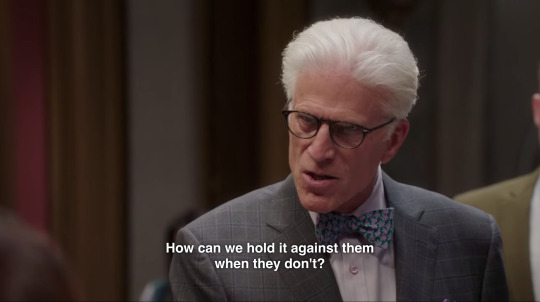
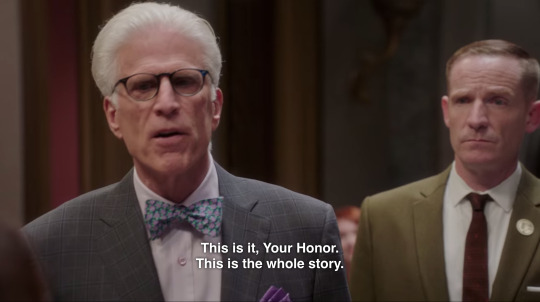
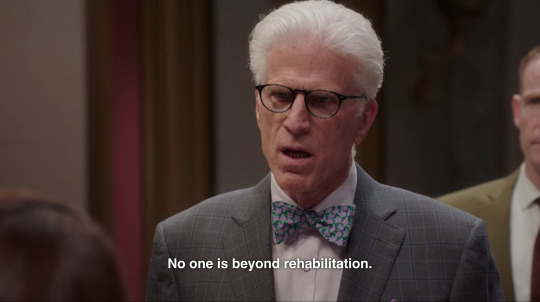
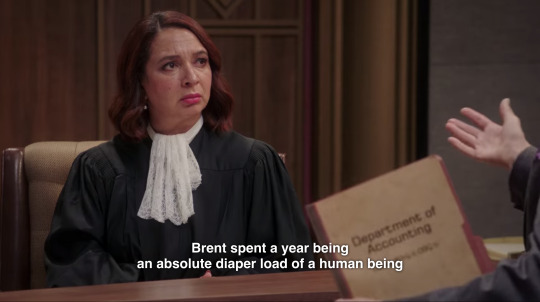


#ethics#philosophy#thoughts#discussion#opinion#knowledge#society#sociology#anthropology#belief#tgp#the good place#outlook#theponderingducks tgp
3 notes
·
View notes
Text
Without disagreement, we would likely be further behind in scientific progress. People might want to pursue information that others deem wrong. Besides, who knows how the world works? It's better to make sure something is real than just assume it isn't.
#ethics#philosophy#thoughts#discussion#opinion#knowledge#society#sociology#anthropology#belief#science
0 notes